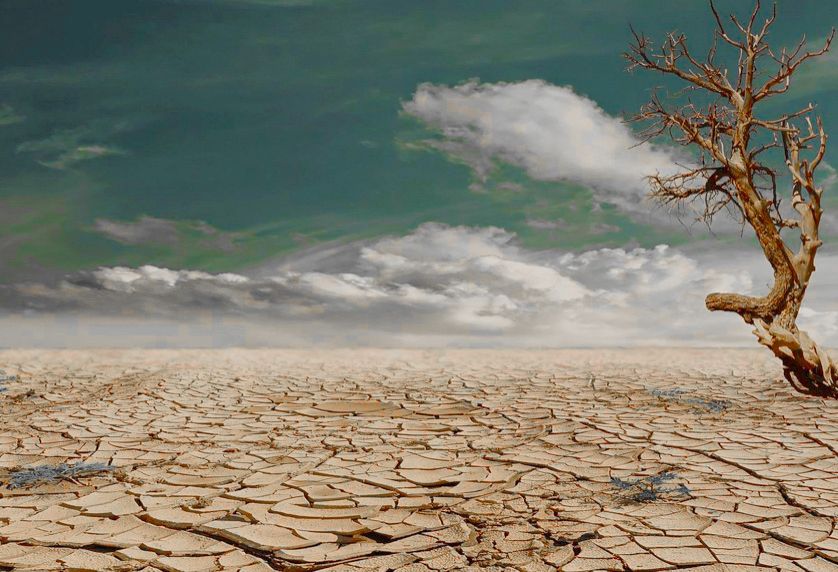|
Writing about race is a double-edged sword. The edge I focus on is the one that cuts through our cultural blindspots to ask the questions I want to ask. But there is another edge that often cuts me back. Because if you write about race, many people automatically see you as an expert on race, and they want to avail themselves of your so-called expertise. Regularly, well-meaning people who read my work contact me. Most of them ask me essentially the same question: Will you teach me what to do? There are many variations on the question. Some, such as the angry demands, obviously need to be ignored. Some are declarative: One variation I’ve gotten many times is illustrated in this quote from an email message: “It would help if you gave specific, actionable steps we can take instead of just voicing the problem.” Another was more blunt: “Unless you tell us what to do, you’re just complaining.” Others are more thoughtful, another email message asked: “I wonder if you can show me how I can use my privilege to help.” Regardless of the variation, they are all saying the same thing: Teach me what to do. If you are one of those people, believe me when I say that I understand. I understand why you would contact me, and I understand why you would ask this of me. I understand because I find myself tempted to do the same thing. For instance, I don’t know what it’s like to be a disabled person, and I have this vague sense that I have it better than disabled people. If my actions contribute to that, what better way than to ask disabled people to teach me what to do, right? The problem is that is not the better way, that is the easier way. It’s easier because you can passively receive information while you place the burden of work on someone else. Imagine you are a child who has been abused. It was someone else who abused you, but now I care for you. Unfortunately, I periodically hit you too. Accidentally. I don’t mean it, but sometimes I do it – whatever. One day you come to me and say “Terra, I don’t want to be hit anymore.” I hear you, and I want to be better. So I say “Hey, I know this is hard for you to talk about, but you should help me be better. Otherwise, you’re just complaining, right? So let’s fix this. Tell me the specific, actionable steps I can take to not hit you anymore. Teach me what to do.” It’s not a perfect analogy, but it serves the purpose of illustrating the point. It is not incumbent on a disabled person who has felt oppressed by ableist society to teach me how to be a better person. That places the burden of my actions on them. It suggests they are to blame for my failure: “I’m still an ableist person, you obviously didn’t do a good job of teaching.” It also puts them in the position of reliving experiences and trauma not for their own catharsis, but for my benefit. I can’t ask a disabled person to do this and have any illusions that I am a good person for it. Another aspect of the “tell me what to do” issue is sheer mathematics. At one point, I had a minimum of one person per week asking me to help them navigate the complexities of race. Every one of them felt they were atomic – each person sees themselves as asking one small request as if it is the only request I have, as if their request happens in isolation. I’m just an unknown, small-town writer and yet I have several thousand such requests. Imagine the number of requests of someone more well-known. At the height of this madness, I did the math and determined that even if I spend only five minutes responding to each request, it would take over three-hundred hours to respond to just the ones I’ve already gotten. That amounts to me spending two solid months doing nothing else than responding to people’s questions about race. And all of this ignores the biggest fact, the elephant in the room, the sad reality that is the hardest for anyone to face: There are no easy answers. There is no “What do I do.” There are no “specific, actionable steps” you can take. There are no easy answers. There are only questions and a lot of really, really hard work. The Land of Inequality is a desert. Those of us who live in this desert already know the truth of it. There are no black-and-white answers. There is just a long, hard, emotionally exhausting journey of self-evaluation, critical thinking, and cultural study. There is a lot of reading and a lot of research and probably a lot of trying to understand what it’s like to live in snow-covered landscapes when you’ve only heard people talk about snow and maybe don’t even believe snow exists. It’s hard. It’s damn hard. It’s so damn hard that before you even understand the basics of the issue, you are an emotional catastrophe and have probably lost most of your ability to even understand yourself. No one can teach you this, no one can show you what to do. You have to walk into the valley of the shadow of death, you have to walk into it alone and you have to know that there is no other side that you will ever reach. You will die in this place. You will die here because “the other side” of this valley doesn’t exist. It is a myth you have been told to make you feel better. There’s no “this is what you do to fix it.” The valley of the shadow of death is all there is and all there ever will be. That’s the sad reality. When you ask a Black person to teach you how to be a better white person, you are scratching a wound that has been carved so deep into them that they feel the pain of it in their bones. When you ask that, they know the burden is on them to make your journey easier, and that they are expected to do it for free. They know their time has no value to you – that you don’t know, and possibly don’t care, how many times they’ve been asked to do this before. They know that whatever pain they feel from their own emotional navigation of these issues, is immaterial to their desire to be taught about it in a way that is quick and convenient. Most importantly, they remember being forced to walk into the valley of the shadow of death. They remember that they had to do it alone and that they entered that valley when they were about five years old. Now here you come all happy and grown up and say, “Hey, this sucks, right? It’s hot and I’m tired and thirsty. I want to help fix this, so if you could drive me across to the other side real quick that’d be great, thanks.” And you say this as if you are really trying to help. So you wonder, as one reader wondered to me, “Why do Black people complain about race but then not take the time to help me fix it?” It is because we have heard that question too many times before, and know too well that if you are asking that question, you have not done the work you need to do. We know that you are asking that question because you are trying to hitch a ride across the valley. We know you think it’s just too hot and too tiring and too boring and just way too hard to walk all that way yourself, so we’re supposed to carry you. For free. Those people who don’t ask that question already see this. They know that the work is their responsibility. They went and read Baldwin and Morrison on their own, they search out Audre Lorde and bell hooks, they listen to podcasts, they find speakers, they read everything they can, and then read the people that those writers read. They do this all on their own. Those people who don’t ask that question spent years preparing themselves for a journey knowing they would never finish, and they entered the valley of the shadow of death knowing that their feet would blister and their mouths would taste of sand, and that they would die in this place. They knew that. They stood at the edge of the valley of the shadow of death and knew they would not make it across . . . and they entered it anyway. They walked all the way to where we are. And they did it alone. Those are the people whom we help, because they are the ones we can trust. They are the ones with whom we share our water, because they have chosen to be with us even knowing they will die here. They alone are the ones who will learn the secret. They alone will die in this place only to experience the death that is not death. I know you want it to be easy—we do too, believe me. But it’s not easy. It’s very, very hard. I’ve been dealing with this, and learning about this, and studying this since I was a child. It’s been forty-five years that I’ve been walking alone in this valley and even then I got a lot of it wrong. A lifetime and I’m still reading, and still seeking answers, and still learning, and my feet are as blistered as anything you’ve ever seen. Do you really think so little of the experiences of my life that you honestly expect a short conversation with me to clarify the issue of race for you? Is my forty-five years in this valley so meaningless that you expect I can quickly delineate “specific, actionable steps we can take?” That’s the sad reality. Even if I had the time to have that conversation with the thousands of people who’ve assumed they are the only one asking that question, there is literally nothing that I can give you in that conversation unless you have already done the work. Unless you have already walked into that valley, alone, to die, I can’t help you. And if you have, there are different questions you would be asking me. But, even knowing this, people still want the easy answer. So you know what I’m going to do? I’m going to tell you. For every person saying “Teach me what to do,” here it is, in one simple paragraph: Read, listen, do the work, join a group like SURJ (Showing Up for Racial Justice). When you walk into the valley, alone, I will meet you. When your feet are blistered and your mouth tastes of sand, I will meet you. When you accept the grim reality that you will die in this place, I will meet you. I will meet you and I will give you my water and I will show you the death that is not death.
|

